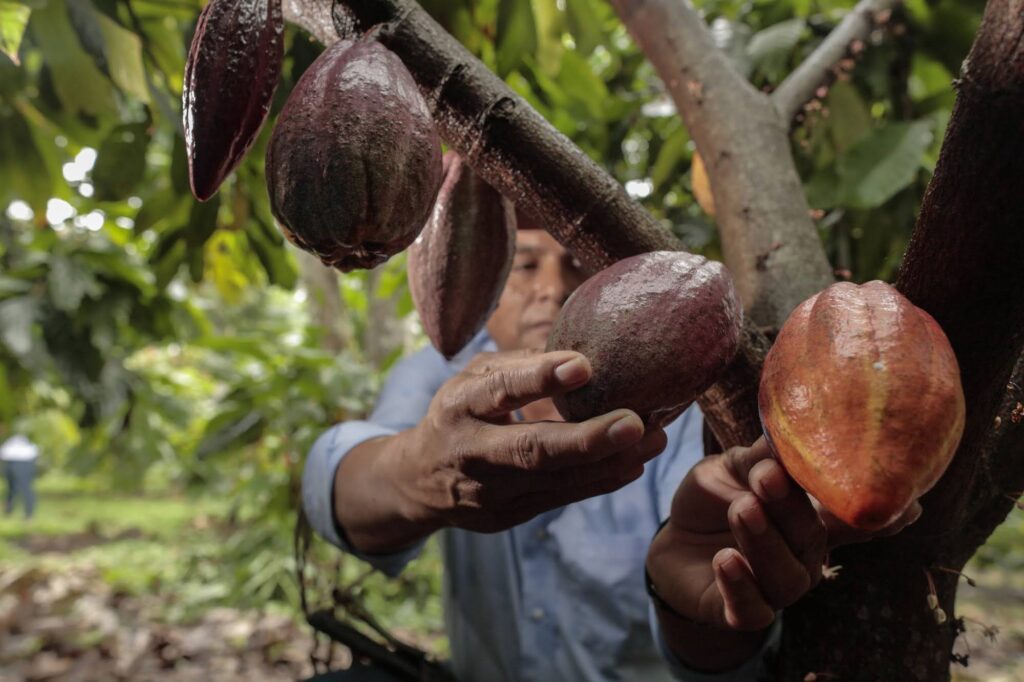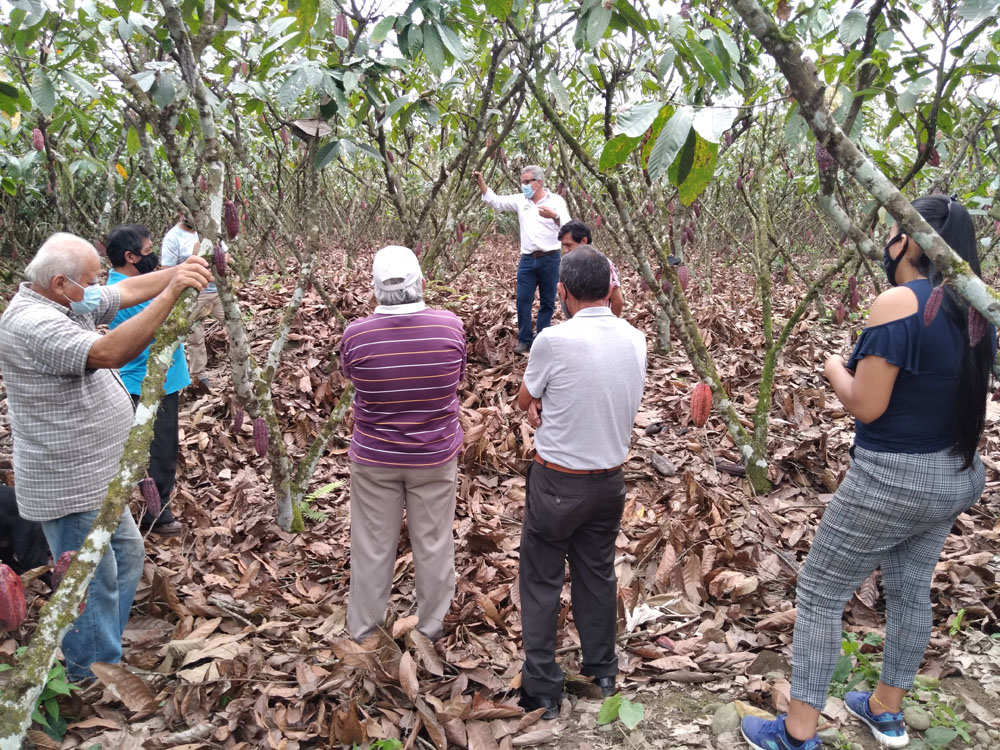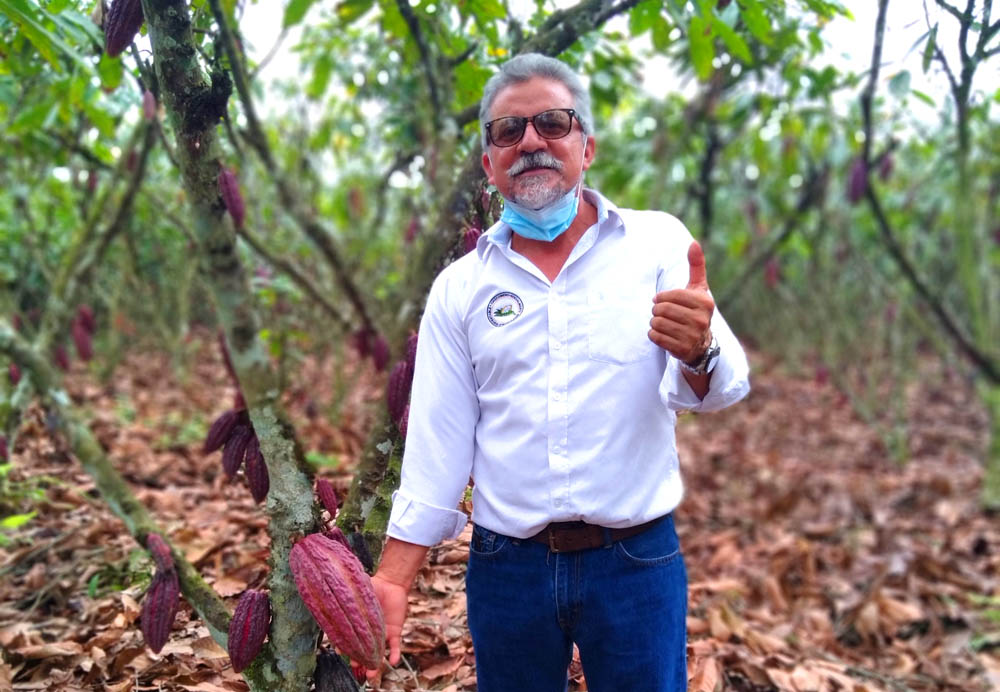“Now we are better prepared to face the market,” says Abdón Heras, Chairman of Chocoben. The company is preparing its first export to Bolivia and he tells us how the program “Maximizing Opportunities in Coffee and Cacao in the Americas” (MOCCA) helped them make the leap.
Chocoben is an Ecuadorian company with more than 20 years of cacao culture dedicated to the production and domestic marketing of cacao beans. The fact of having completed a strict training program allowed Chocoben to be the first cacao business to be awarded a loan granted by the Jardín Azuayo Savings and Credit Cooperative. This is part of the partnership that both the cooperative and the company have with the program “Maximizing Opportunities in Coffee and Cacao in the Americas” (MOCCA), of which Rikolto is the implementing partner in Ecuador.

Through this loan, Chocoben is growing internationally alongside new projects that will crystallize by the end of 2021.
“The $350,000 USD loan was aimed at improving the plant and was invested in working capital, allowing us to provide the service of buying and exporting cacao to allied farmers. With this we are better prepared to meet the demand of the market and to offer higher volumes”, says Abdón Heras, Chairman of the company. He adds that thanks to this support, they recently made their first export from the port of Guayaquil to Bolivia, a new market for the company.
Lack of access to credit is one of the main obstacles faced by coffee and cacao farmers in the Latin American region. On average, a company like Chocoben requires $2,500 USD per year to manage each hectare of cacao. Assuming this cost without the support of financial entities forces farmers and entrepreneurs to choose between renovating cacao farms to maintain the business or investing in infrastructure or equipment to grow. This situation is exacerbated in times of crisis such as the current pandemic. Find out how MOCCA supports Ecuadorian cacao companies to consolidate and grow despite the challenges.
Access to credit boosts growth during the pandemic
Heras admits that at first he hesitated at the idea of receiving a loan for $350,000 USD because he would be mortgaging his farm in the middle of a pandemic. However, the possibility of making improvements to the company motivated him. With MOCCA’s support, he developed technical assistance workshops on cacao fertilization, pest and disease management, post-harvest, and financial and fiscal management for farmers and workers. This allowed him to secure his processes and the quality of his products, but also to access a competitive 11% credit rate for infrastructural improvements.
Now he is enthusiastic about the expansion of the company’s drying area, the acquisition of generators to improve the electrical system, and the investment in a cleaning and sorting machine. All this equipment has allowed them to dream of entering into new markets. “In Bolivia there is an unsatisfied supply of specialty cacao for the industry. This is an opportunity and the first ongoing export operation for us,” says Abdón.
Chocoben’s cacao is domestic, premium and type ASSS, with a special profile. It was sold at $2,700 USD per ton FOB, $300 USD above the price on the New York Stock Exchange. “The support given allowed us to improve delivery times,” he concludes, adding that after Bolivia he dreams of opening a market in Europe.
At the end of 2020, MOCCA and Jardín Azuayo formed a partnership to grant loans to program partners. This financing is expeditiously granted to farmers, associations, organizations or companies. To qualify, candidates must also receive training, technical assistance, and marketing support. This comprehensive assistance ensures the success of their harvests and sales, and thus a return on their investment.

Partnerships to secure investment
“One of the shortcomings faced by farmers is their limited technical knowledge to improve their crops, and how to care and maintain cacao farms. This is why there is a need for technical support, to complement the empirical knowledge and achieve better results to ensure the return on investment,” said Galo Ismael Zhunio, Territorial Director of Jardín Azuayo, highlighting their commitment to small and medium-scale farmers. The cooperative finally gave the green light to grant the loan supported by the MOCCA program to the company.
“The loan that was granted strengthened the company’s operations. In addition to material improvements, it also contributed to the strengthening of its cacao marketing process, the construction of its marketing intelligence, and the opening of new markets,” added the representative of Jardín Azuayo.

Hand in hand with the public and private sectors, the MOCCA program promotes a renewed credit offer for Ecuadorian coffee and cacao that is accessible to farmers, their organizations, and companies. It also promotes a training offer that improves production and marketing standards. “This ensures a return on investment for farmers, cacao companies, and lending institutions,” adds José Luis Cueva, MOCCA’s Ecuador Manager, and Rikolto team member
Thanks to the access offered to financial services, the program ensures an adequate income for 5,000 Ecuadorian cacao farmers and enables them to strengthen their businesses in times of crisis. In addition to the partnership with Jardín Azuayo, agreements have been signed with the Hermes Gaibor and Futuro Lamanense savings and credit cooperatives, the Faces Foundation to support farmers in the “Green Financing for Agricultural Sustainability” program, and with the Instituto de Investigaciones Socio Económicas y Tecnológica (Insotec) to strengthen financial services provided to farmers in common intervention zones.







